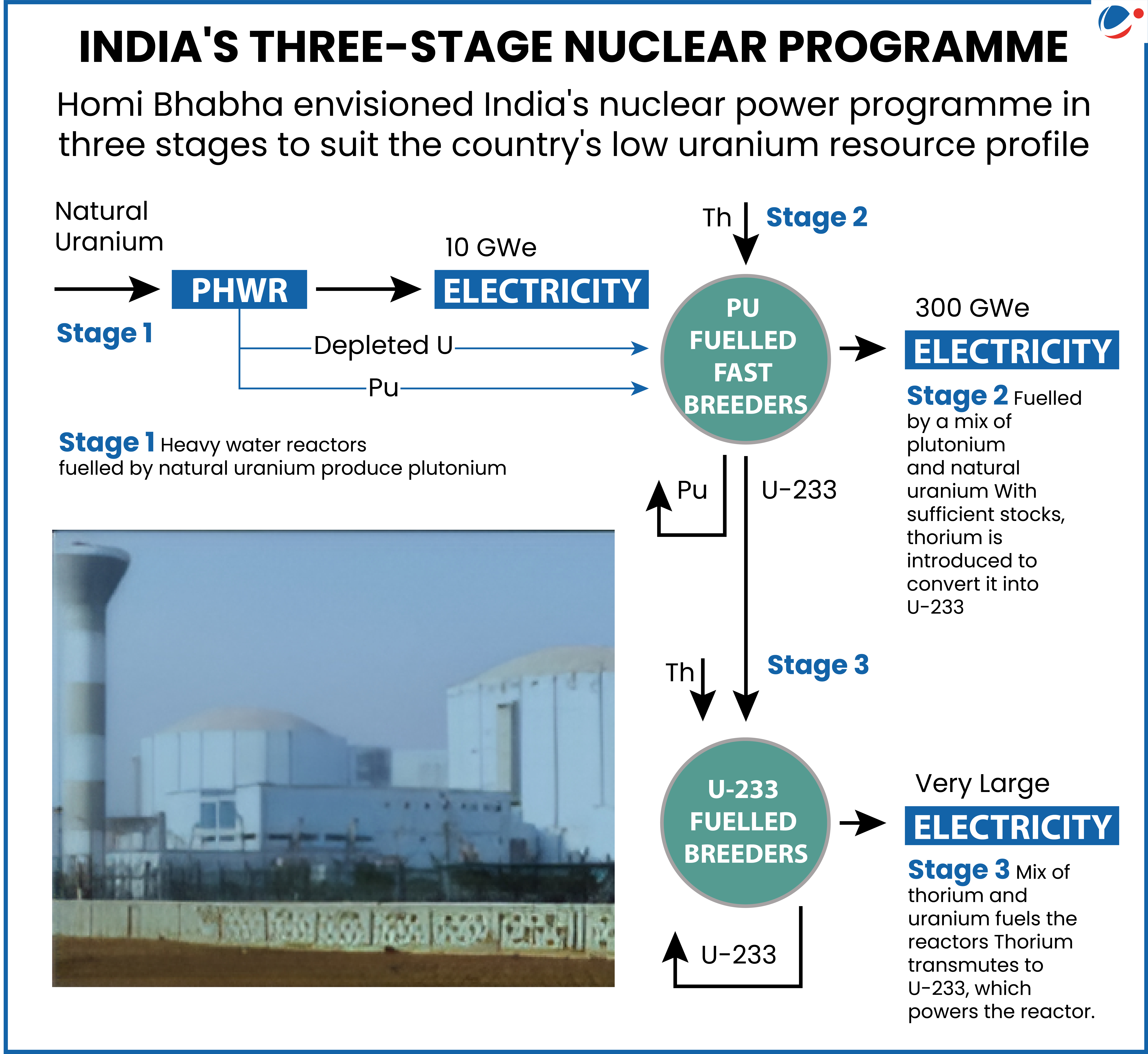Gorakhpur project consists of two twin units, each with a Pressurized Heavy Water Reactor (PHWR), for a total capacity of 2800 MW
About PHWR

- A PHWR uses Heavy Water (D₂O) as both coolant and moderator, with natural uranium as fuel.
- Heavy water is water that contains heavy hydrogen (also known as deuterium) in place of regular hydrogen.
- Heavy water is used because it slows down neutrons effectively and also has a low probability of absorption of neutrons.
- India’s PHWR Development
- Introduced through Indo-Canadian nuclear cooperation in the 1960s.
- First 220 MW reactor built at Rajasthan Atomic Power Station (RAPS-1).
- After Pokhran-1 (1974), Canada withdrew support, leading India to indigenously develop and standardize the 220 MW PHWR design.
Recent Developments in Nuclear Energy in India
- Nuclear Energy Mission envisages deployment of 100 GWe of nuclear energy by 2047.
- India currently has about 8.1 GW installed.
- New Uranium Deposit discovered in India's oldest Uranium Mine, the Jaduguda Mines in Jharkhand.
- First two units of the indigenous 700 MWe PHWR at Kakrapar, Gujarat (KAPS - 3 & 4) have started commercial operation in FY 2023-24.
- Country's first Prototype Fast Breeder Reactor (PFBR 500 Mwe) achieved key milestones in 2024.
- NPCIL and NTPC formed ASHVINI, a Joint Venture to build and operate nuclear plants including the upcoming 4x700 MWe PHWR Mahi-Banswara Rajasthan Atomic Power Project.






